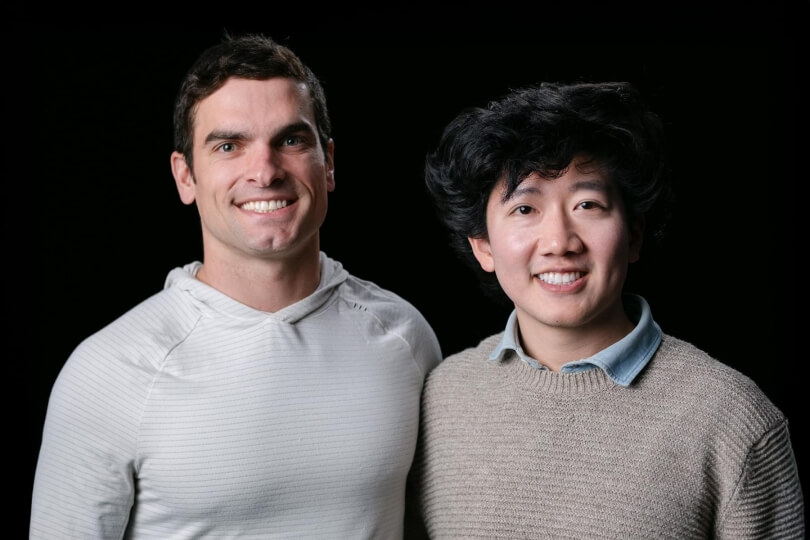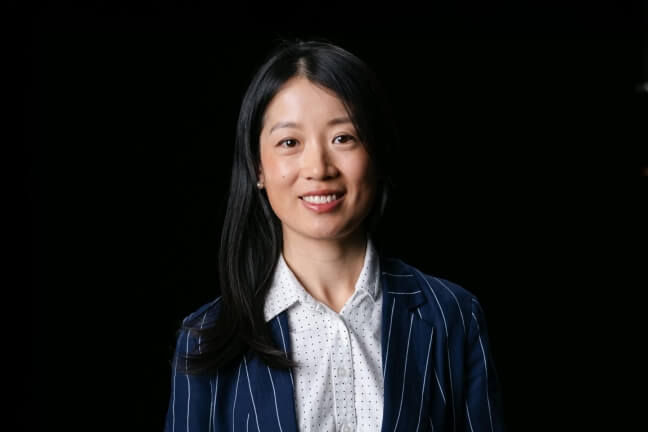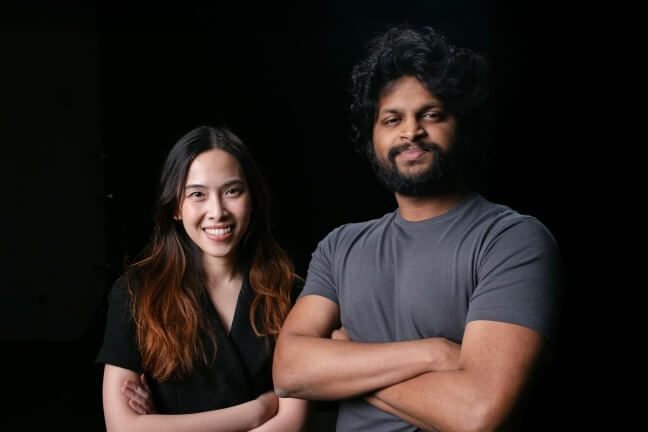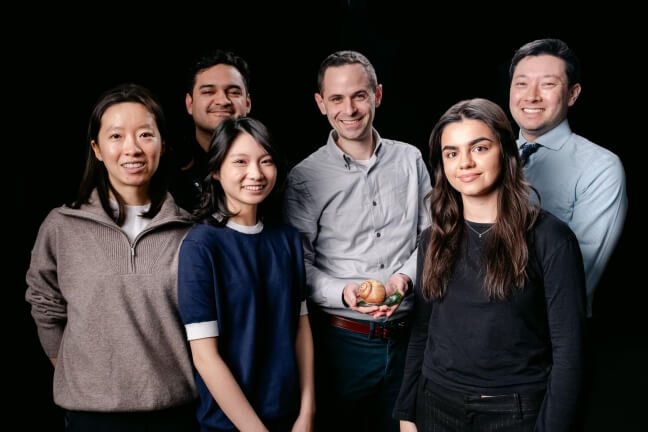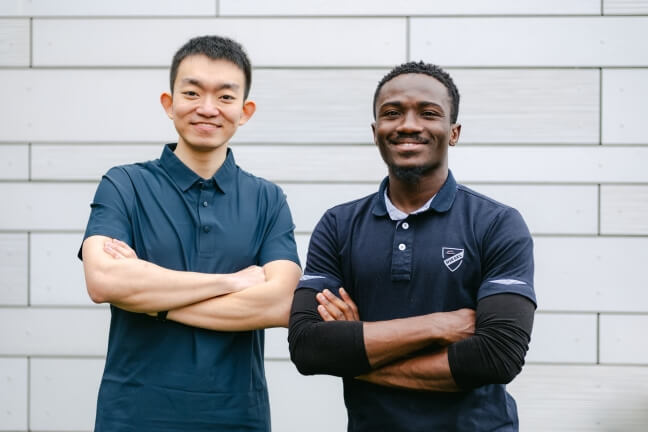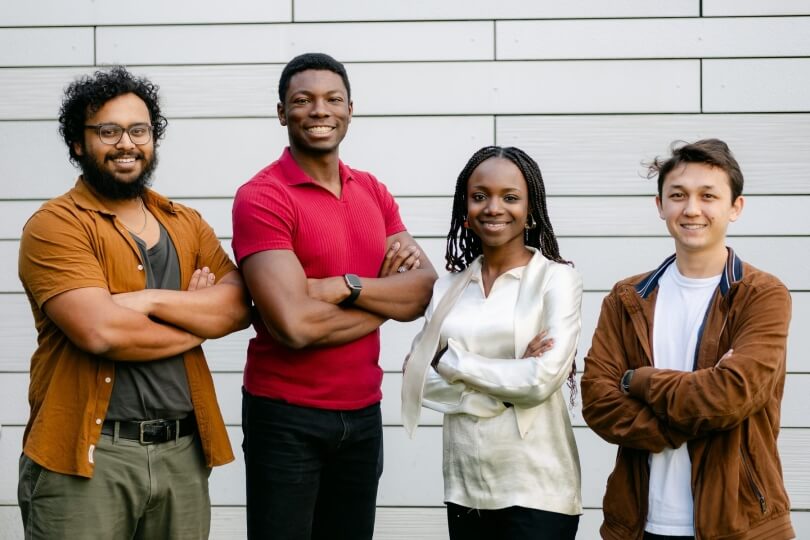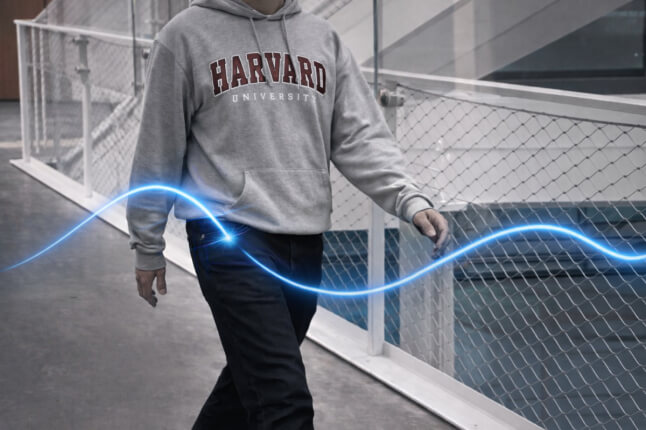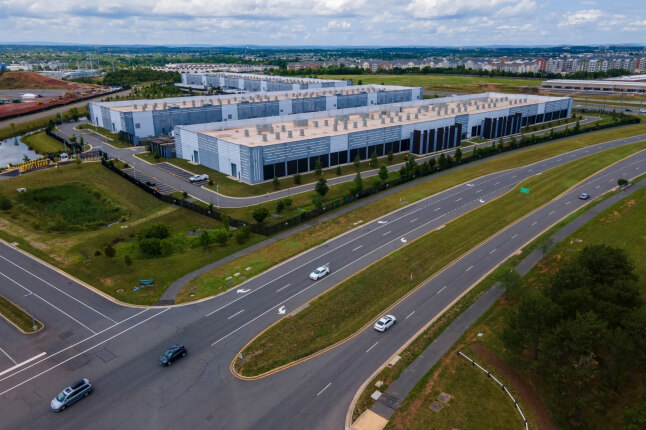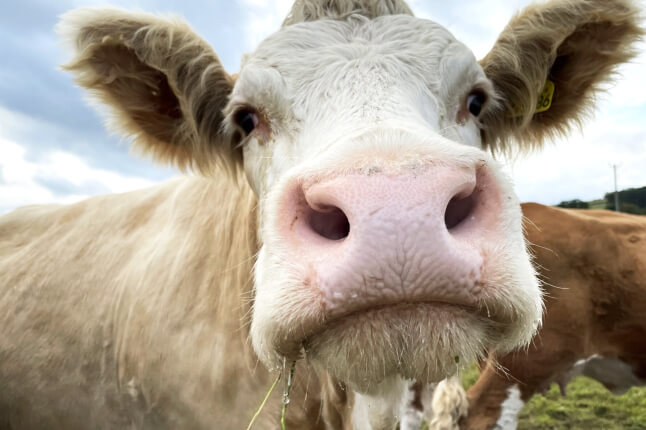News
Laptis co-founders Andrew Steen and Kevin Hu, MDE '25 (Dan Pinnolis/Harvard Innovation Labs)
Six start-ups affiliated with students or faculty at the Harvard John A. Paulson School of Engineering and Applied Sciences (SEAS) have been named finalists for the 2025 President’s Innovation Challenge. The Harvard Innovation Labs recently announced their 25 finalists, which will compete for shares of $517,000 in prize money at the awards ceremony on May 7 at Klarman Hall at Harvard Business School.
“As a team, we’re incredibly excited and grateful for the opportunity,” said finalist Kevin Hu. “I know there’s a lot of luck involved, and I’m sure dozens of other ventures were just as deserving of being named a finalist.”
Hu, a graduate student in the Master in Design Engineering (MDE) program co-run by SEAS and Harvard Graduate School of Design, co-founded Laptis, a finalist in the Student Health Care & Life Sciences track. Laptis offers a streamlined website for connecting substance use treatment seekers, such as physicians or caregivers, with the best treatment center for their needs.
“Tens of millions of people in the U.S. face substance use challenges each year, yet the treatment landscape remains fragmented, opaque, and difficult to navigate,” Hu said. “Laptis is building a data-intelligent referral infrastructure to make access to care faster, more transparent, and more equitable – for patients, and for the systems that serve them.”
IntuitiveMotion.ai will compete in the Student Open track. Founded by Cecilia Liu, an MS/MBA student in the program run by SEAS and Harvard Business School, the start-up offers modular and cost-efficient physical artificial intelligence for robots that interact with the world around them.
“As an engineer, I hope to take a stronger initiative to help redefine work and equity with physical AI,” Liu said. “The modular approach resonated with me more as a founder because of my experience in early stage robotics startups, seeing challenges beyond technical stuff, such as regulations, customer confidence, and sales cycles.”
IntuitiveMotion.ai founder Cecilia Liu, MS/MBA '25 (Dan Pinnolis/Harvard Innovation Labs)
Lexi co-founders Linh Pham, MDE '25, and Siddharth UR, MDE '25 (Dan Pinnolis/Harvard Innovation Labs)
Lexi, a finalist in the Student Social Impact track, uses artificial intelligence to help patients navigate language barriers in healthcare. It was co-founded by MDE students Siddharth UR, Daniel Rodriguez Rodriguez, Linh Pham and Luke Fiorante, and recently won the $75,000 grand prize at the Harvard Business School New Venture Competition.
“In our own communities, we’ve seen patients rely on family members to interpret, be misunderstood during urgent moments, or avoid care altogether,” Pham said. “We saw an opportunity to use machine learning not to replace human interpreters, but to fill critical gaps, especially for less commonly spoken languages and after-hours care, where access to professional interpreters is limited.”
The other three SEAS-affiliated finalists are back in the President’s Innovation Challenge for the second time. Limax Biosciences, which won the grand prize in 2022 and is competing in the Alumni and Affiliates Health Care & Life Sciences track, produces a stretchable hydrogel for treating both internal and external injuries. It was co-founded by David Mooney, Robert Pinkas Family Professor of Bioengineering at SEAS, and Ben Freedman, a postdoc in the Mooney Lab, and its team includes multiple current and former SEAS students.
Members of the Limax Biosciences team, including Ben Freedman, a postdoc in the David Mooney Lab at SEAS (Dan Pinnolis/Harvard Innovation Labs)
Vocadian co-founders Yujie Wang, MDE '24, and Joachim Asare, MDE '25 (Dan Pinnolis/Harvard Innovation Labs)
Vocadian is back in the finals for the second straight year. Co-founded by Yujie Wang, MDE ‘24, and Joachim Asare, MDE '25 Vocadian uses artificial intelligence to analyze vocal and speech patterns for signs of fatigue.
“We’re focused on high-stakes, safety-sensitive industries, such as transportation and logistics, mining, construction, aviation and healthcare – workers who frequently have long shifts and suffer from fatigue or burnout risks,” said Wang. “The workers conduct voice assessments before their regular shifts to get fatigue levels and performance forecasts, which act as fit-for-duty screening and safety training and enable personalized interventions.”
Vocadian is competing in the Alumni & Affiliates Open track, as is Halo Braid, a 2023 winner of an Ingenuity Award for early-stage start-ups. Founded by Yinka Ogunbiyi, MS/MBA '23, Halo Braid is an automated hair-braiding device for hairstylists that could reduce the time it takes to braid hair from hours to minutes.
Halo Braid's founding team includes Yinka Ogunbiyi, MS/MBA '23 (Dan Pinnolis/Harvard Innovation Labs)
“It started to make commercial sense when I did the math on how much stylists earn, how much time they spend braiding hair, and what would happen if they could effectively triple the number of clients they could see,” Ogunbiyi said. “When you do those numbers, it’s potentially a hundred thousand extra dollars they could earn per year.”
Three SEAS-affiliated teams will be recognized with Ingenuity Awards this year. AIRQUA, co-founded by MDE students Sirinda Limsong, Hongbee Park and Eric Oh, generates clean, drinkable water from the air, providing a sustainable solution for areas affected by water depletion. Pythia Diagnostics, co-founded by biomedical engineering concentrators Derek Vastola, A.B. '24, and Lani Tran, A.B. '26, as well as computer science concentrator Charlie Bratton, A.B. '26, offers a wearable device that predicts epileptic seizures by analyzing chemicals released by the skill. SpiroSniff, an engineering senior capstone project by Roaa Marei, Alex Klein Wassink and Gabby Troy, is a breathalyzer for early lung cancer detection.
“Existing methods for detecting lung cancer from breath samples are typically costly, difficult to scale, and lack specificity – especially outside controlled lab environments,” the SpiroSniff team said. “SpiroSniff seeks to address these barriers with a low-cost, user-friendly, and scalable solution.”
Topics: AI / Machine Learning, Awards, Bioengineering, Computer Science, Design, Entrepreneurship, Health / Medicine, Master of Design Engineering
Cutting-edge science delivered direct to your inbox.
Join the Harvard SEAS mailing list.
Press Contact
Matt Goisman | mgoisman@g.harvard.edu
